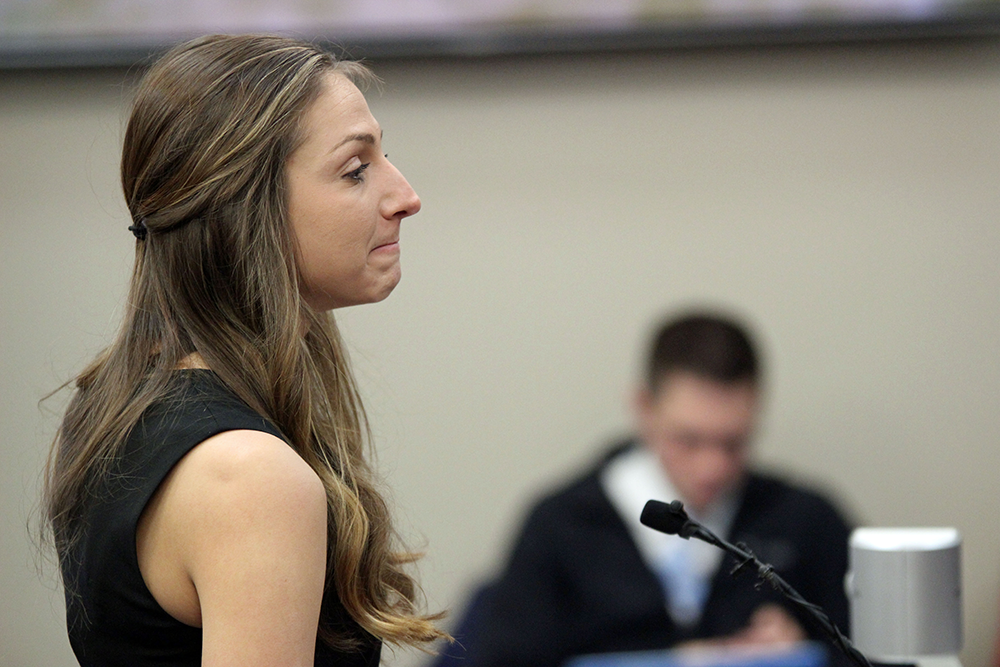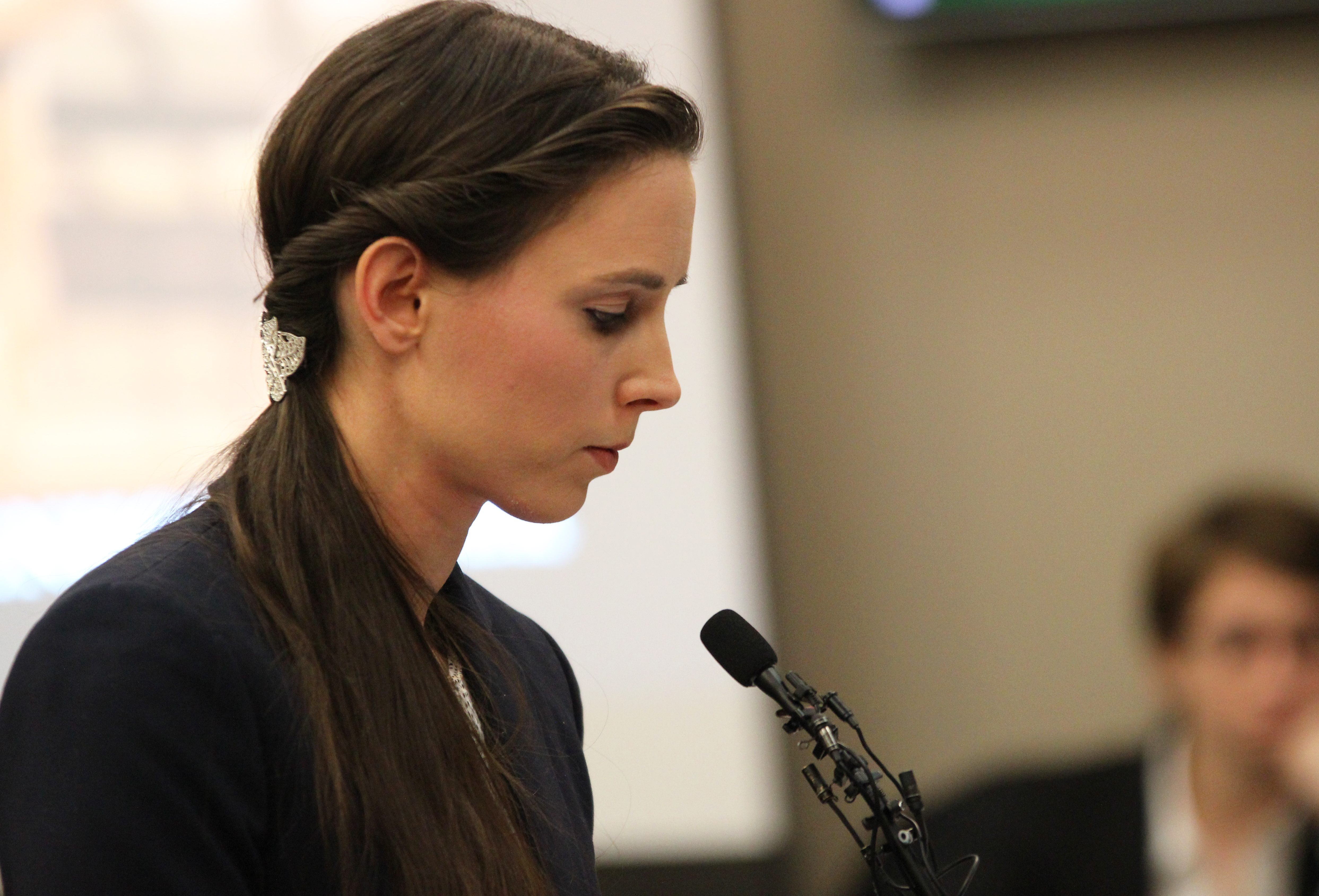Tuesday, January 16, 2018.
The first day of Larry Nassar’s sentencing hearing. The first day survivors get to face him, in person.
The place is packed. It’s jarring to see how young some of the faces in the courtroom are. It’s one thing to know that Larry’s victims are young. It’s another to actually see 15-year-olds sitting with their moms.
Larry’s brought in, his hands uncuffed. He sits up at the front, next to his lawyer, in the witness stand. Judge Rosemarie Aquilina wants him there so victims can look at him directly while they make their statements.
Larry’s hunched over, in a faded blue jail jumpsuit and orange crocs.
The lawyers run through some last-minute logistics. And then, it begins.
A young woman in a black dress, hair twisted back off her face, is the first to approach the podium. She’s only been known as Victim Z-A.
Until now.
“Please state your name for the record,” Judge Rosemarie Aquilina says.
“Kyle Stephens. K-Y-L-E S-T-E-P-H-E-N-S.”
Kyle takes a breath.
“I was the first to testify in this case, and worried the attention that could come with that asked for complete anonymity,” Kyle tells the packed courtroom. “This process has been horrific but surprisingly therapeutic. I’m addressing you publicly today as a final step in statement to myself that I have nothing to be ashamed of.”
Kyle’s mother stands a few steps behind her on her right.
News cameras click click click click, and Kyle’s voice shakes as she tells the full courtroom the raw, specific details of Larry’s abuse.
How it started when she was just six years old. How he put his fingers inside her. Masturbated in front of her. Rubbed her feet on his penis.
How her parents didn’t believe her.
Kyle turns to address Larry directly.
“After my parents confronted you, they brought you back to my house to speak with me,” she tells him. “Sitting on my living room couch, I listened to you tell me no one should ever do that, and if they do, you should tell someone. Well, Larry, I’m here not to tell someone, but to tell everyone.”


